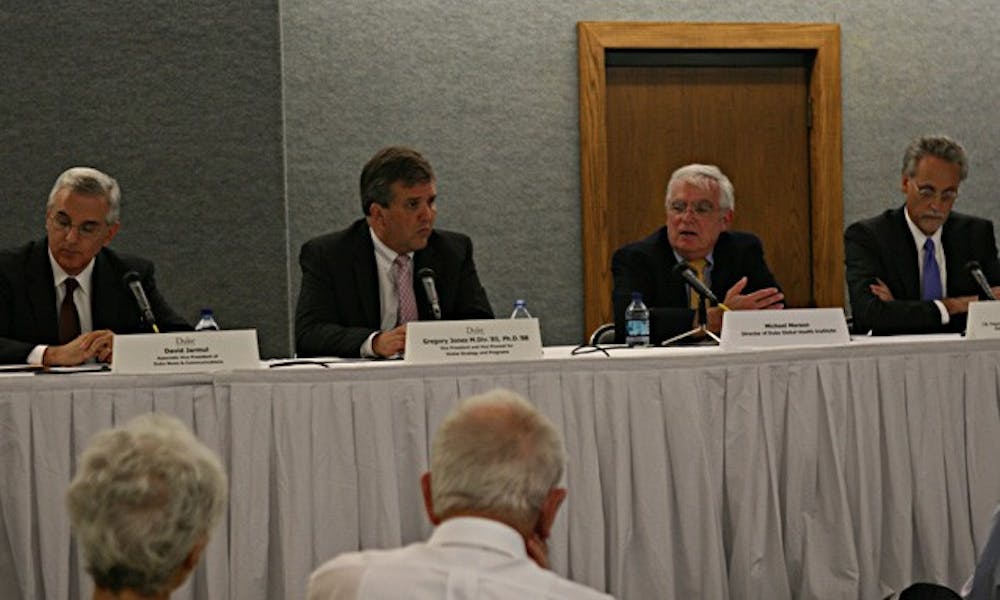As part of a campus-wide initiative to highlight the University’s commitments abroad, Duke held a panel discussion Friday on its global objectives.
The event “A World Together: Duke and Global Development” featured several administrators including William Boulding, J.B. Fuqua professor of Business Administration and deputy dean for the Fuqua School of Business; Gregory Jones, vice president and vice provost for global strategy and programs; and Dr. Michael Merson, director of Duke Global Health Institute.
“It is a question of Duke’s outreach,” said Beth Ray-Schroeder, assistant director of education and travel for Duke Alumni Affairs. “This is part of the World Together Initiative geared toward returning alumni, and we’ve really seen a record turnout. People are interested to see how Duke has grown beyond boundaries.”
Jones opened the forum by calling global outreach “the flavor of the moment” at many American colleges and universities before detailing Duke’s more long-term strategy.
“Every college wants to be international,” he said. “Some get into it for the money that an overseas location could bring. Ultimately, we want to maintain the level of quality in research and education to make students leaders of consequence.”
The panelists said Duke hopes to be an ambitious leader among universities in the nation and stand out by not limiting itself to typical strategies. Merson noted that members of the Ivy League are also expanding globally, but they are more cautious and “do not do it as boldly.”
At Duke, plans to establish programs in other nations, Jones added, will allow better collaboration between the University and its alumni living abroad.
“A major proposal is to draw new partners,” Jones said. “For example, for programs in China, we would draw in Chinese alumni. They would be motivated by the positive changes that Duke would bring to their home country.”
Merson said Duke should become even bolder in its approach. His ideas included raising the student body’s international representation to 20 percent and having 90 percent of professors teach in a foreign country every three years.
Boulding placed global initiatives in the context of business schools, noting that the world has fundamentally changed and that business schools have underreacted.
Many returning alumni reported positive changes in Duke’s global outlook and enjoyed hearing an updated perspective.
“Duke has always been a pioneer in global issues and has served as a model for colleges and universities in the United States,” said Ed Nixon, Trinity ’52.
Get The Chronicle straight to your inbox
Signup for our weekly newsletter. Cancel at any time.

